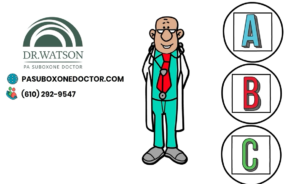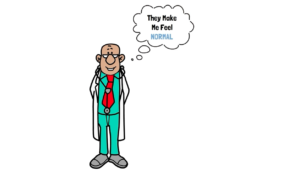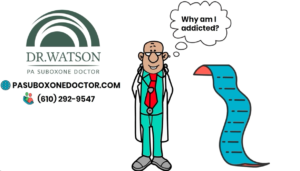Combining Medication-Assisted Treatment with Therapy for Enhanced Recovery
Recovering from addiction is a complex journey that requires addressing both the physical and psychological aspects of the condition. Medication-assisted treatment (MAT) has emerged as an effective approach for supporting individuals in their recovery, and when combined with therapy, it can provide a comprehensive and holistic treatment experience. At PA Suboxone Doctor, we are dedicated to integrating medication-assisted treatment with therapy to enhance the recovery process for our patients.
Understanding Medication-Assisted Treatment (MAT)
MAT involves the use of medications such as Suboxone and Sublocade to manage withdrawal symptoms and cravings associated with addiction. Suboxone, containing buprenorphine, helps reduce cravings and withdrawal symptoms while minimizing the risk of misuse. Sublocade, on the other hand, is a long-acting injectable form of buprenorphine, providing extended relief from cravings. These medications have been proven effective in supporting long-term recovery, and extensive research supports their use as part of a comprehensive treatment approach.
The Role of Therapy in Addiction Recovery
Therapy plays a vital role in addiction recovery by addressing the underlying psychological and emotional issues that contribute to substance abuse. Various therapeutic approaches, such as cognitive-behavioral therapy (CBT), dialectical behavior therapy (DBT), motivational interviewing (MI), and group therapy, are commonly used in addiction treatment. Therapy helps individuals develop coping skills, manage triggers and cravings, heal from trauma, and address co-occurring mental health disorders. It is an essential component of the recovery process.
The Synergy of Medication-Assisted Treatment and Therapy
When medication-assisted treatment is combined with therapy, it creates a powerful synergy that enhances the overall recovery experience. MAT addresses the physical aspects of addiction by reducing cravings and withdrawal symptoms, while therapy focuses on the psychological and emotional aspects, helping individuals heal from past traumas and develop healthy coping mechanisms. The combination of both approaches provides a comprehensive treatment plan that supports long-term recovery and improves the overall quality of life.
At PA Suboxone Doctor, we emphasize the integration of medication-assisted treatment and therapy to provide our patients with the most effective and comprehensive treatment experience. Our medical professionals, therapists, and support staff work collaboratively to develop individualized treatment plans tailored to each patient’s unique needs and goals.
Why Choose Us?
Our team of medical professionals has extensive expertise in medication-assisted treatment, ensuring the safe and effective administration of medications such as Suboxone and Sublocade. Our therapists are highly trained in addiction counseling and evidence-based therapies, including CBT and mindfulness techniques. This combination of medical and therapeutic expertise allows us to provide a well-rounded and personalized treatment approach.
The success stories of our patients speak volumes about the effectiveness of combining medication-assisted treatment with therapy. They have experienced improved quality of life, sustained recovery, and a sense of empowerment in managing their addiction. Through the integrated approach at PA Suboxone Doctor, our patients have found hope and regained control of their lives.
Contact Us Today
If you or a loved one is struggling with addiction, we encourage you to explore the benefits of combining medication-assisted treatment with therapy. Contact PA Suboxone Doctor today to schedule an appointment or learn more about our integrated approach to addiction recovery.

Combining Medication-Assisted Treatment with Therapy boosts recovery, with success rates soaring as high as 70%.



Conclusion
the combination of medication-assisted treatment and therapy offers a powerful and comprehensive approach to addiction recovery. By addressing both the physical and psychological aspects of addiction, individuals can experience enhanced recovery, improved well-being, and a brighter future. At PA Suboxone Doctor, we are committed to providing integrated treatment that incorporates the best of both worlds, helping our patients achieve lasting recovery and a healthier, more fulfilling life. Take the first step towards recovery and reach out to us today.
Frequently Asked Questions
What is medication-assisted treatment (MAT)?
Medication-assisted treatment (MAT) is an evidence-based approach that combines medications, such as Suboxone and Sublocade, with behavioral therapy and counseling to treat substance use disorders. It helps reduce cravings and withdrawal symptoms while providing support for long-term recovery.
How do medications like Suboxone and Sublocade work?
Suboxone and Sublocade contain buprenorphine, a medication that binds to opioid receptors in the brain, reducing cravings and withdrawal symptoms. These medications help individuals stabilize their lives and focus on recovery by blocking the effects of other opioids.
What role does therapy play in addiction recovery?
Therapy is an integral part of addiction recovery as it addresses the psychological and emotional factors underlying substance abuse. It helps individuals develop coping skills, identify triggers, heal from trauma, and learn healthy ways to manage stress and cravings.
Why is combining medication-assisted treatment with therapy beneficial?
Combining medication-assisted treatment with therapy offers a comprehensive approach to addiction recovery. Medications address the physical aspects of addiction, while therapy helps individuals address the underlying psychological and emotional factors, leading to a more holistic recovery experience.
What types of therapy are commonly used in addiction treatment?
Common therapy approaches in addiction treatment include cognitive-behavioral therapy (CBT), dialectical behavior therapy (DBT), motivational interviewing (MI), and group therapy. These therapies help individuals develop self-awareness, coping skills, and healthier thought patterns.
How long does medication-assisted treatment last?
The duration of medication-assisted treatment varies depending on individual needs and treatment goals. It can range from several months to several years. The treatment plan is typically tailored to each person’s progress and ongoing support requirements.
Can medication-assisted treatment be used for different types of substance use disorders?
Yes, medication-assisted treatment can be used for various substance use disorders, including opioid addiction, alcohol use disorder, and, in some cases, stimulant use disorder. The specific medication and treatment approach may vary depending on the substance being addressed.
Is medication-assisted treatment covered by insurance?
Many insurance providers cover medication-assisted treatment, but coverage can vary. It is recommended to check with your insurance provider to understand the specific details of your coverage.
Are there any side effects of medications like Suboxone and Sublocade?
Medications like Suboxone and Sublocade may have side effects, including nausea, constipation, dizziness, and sleep disturbances. It is essential to discuss any concerns or side effects with your healthcare provider.
Are support groups beneficial in conjunction with medication-assisted treatment and therapy?
Support groups, such as Narcotics Anonymous (NA) and Alcoholics Anonymous (AA), can be highly beneficial in conjunction with medication-assisted treatment and therapy. These groups provide peer support, guidance, and a sense of community for individuals in recovery.








